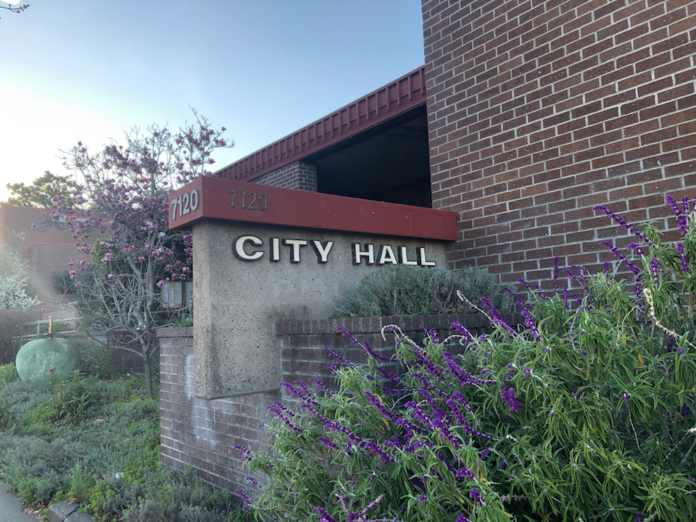Earlier this month, the Sebastopol City Council unanimously approved the city’s mid-year budget adjustments for the 2021-22 fiscal year, which demonstrated a far lower shortfall in the city’s general fund than what was expected when the budget was first adopted in July 2021. In the same motion, the council also accepted the quarterly financial information report.
Administrative Services Director Ana Kwong presented key changes accounted for in the adjusted budget in terms of revenue and expenditures during the Feb. 1 meeting. Initially, the city anticipated a $1,052,433 deficit to the general fund that the city’s reserves would make up for, she said. The budget now estimates only a $328,820 shortfall that reserves would need to cover.
Many departmental requests for mid-year budget adjustment weren’t really up for debate, Councilmember Sarah Glade Gurney noted. Vice Mayor Neysa Hinton responded that departments made additional requests, but the budget subcommittee went through them all to prioritize funding for existing projects.
“Anything that would be new, we pushed for a full budget discussion. These are just adjustments that we really have to make at this point,” she said.
Revenue and expenditures rise in tandem
Kwong introduced changes to the general fund revenue projections drawn from the available data and conservative estimates of last summer. Total revenues once predicted to be $10,114,250 are shaping up to look more like $11,287,834 upon mid-year adjustment.
The budget adjustments now reflect increases in property tax, sales tax, intergovernmental funds, licenses and permits and a significant drop in interests and rents. Other revenues remained consistent with their original estimates.
For example, projected property tax for the fiscal year has been readjusted from $2,821,700 to $3,120,534 and sales tax expected to garner $3,977,500 is now anticipated to bring in $4,547,000, Kwong said. She described licenses and permits as an ongoing “moving target” that the mid-year adjustments are clocking at $347,900 instead of $292,900.
“Interests and rents took a major hit as higher yield investment has matured,” Kwong said of the revenue streams that dwindled from a projection of $170,500 to $68,500. She added that the city’s increase in intergovernmental funds is projected to hit $1,018,350, partly because of the county funds awarded to Sebastopol for its RV park village.
Sebastopol’s expenditures went up, too. Costs to the city were originally marked for $11,166,683, but the total rings up to $11,616,654 after mid-year adjustments.
Some main changes include an increase in the city manager budget to factor in the $60,000 lease payment contract with St. Vincent de Paul, paired with an increase in the city attorney budget from “pending litigation” related to the RV park village. The combined budget first projected at $512,944 is now projected to be $669,744.
Meanwhile, the Sebastopol Police Department has asked for $55,000 “to cover accrual for two employees’ separation and retirements that were not budgeted or anticipated,” Kwong said. With approval, the department’s expenses would increase from $5,112,900 to $5,167,900.
She informed the council and public that general fund expenditures for administrative services jumped from roughly $314,000 to about $346,000, involving the cost of cyber investigation regarding the $1.2 million stolen from the city by fraudulent wire transfer.
Elsewhere, there are requests for $100,000 to go to a cyber investigation review for insurance retention, $40,000 to go to cyber-security risk assessment and $4,000 for credit monitoring protection because of a data breach incident.
Kwong clarified for Councilmember Una Glass that the Sebastopol Cultural Community Center’s request for $85,000 to install a makeup air system for its kitchen remodel would ultimately come from the general fund, despite being a capital improvement program project, because there aren’t any grants or other funds covering it.
Joining the mid-year adjustment request is an appeal from the Sebastopol Senior Center for $11,570 to handle its kitchen return air unit replacement required for appropriate meal preparation. The community center item is housed as part of the $328,820 budgetary shortfall, Kwong said.
“To sum it all up, the mid-year budget includes the increase in projected revenue of approximately $1.1 million with the projected expenses increased by $450,000, for a net impact of a projected deficit that went from over a million down to $329,000,” Kwong said.
So, the reserves that were first projected to end the fiscal year with $2.19 million are now believed to end with $2.92 million — a reserve level of 25.1% in relation to expenditures by June 30, 2022. The previously adopted budget expected a reserve level that was only 19.6% of its costs, per the Kwong’s presentation.
Deficits shrink in water and wastewater funds
The city’s budget subcommittee also recast mid-year revenue projections for water and sewer funds that offset their expected deficits to be covered by reserves.
Kwong said the adjusted budget anticipates a budgetary shortfall of $371,936 in the water fund, down from the $450,441 deficit calculated in the past. As for the wastewater fund, the adjusted budget pegs its shortfall to be about $655,000, down from the $672,000 amount predicted last summer.
Both experienced a small boost in revenue from the incoming share of cyber security insurance reimbursement, she said, related to the past breaches in cyber security and theft of city reserve funds held by the county.
Kwong said the water fund’s revenue also benefited from a service agreement reimbursement, leading to a total projected operating revenue of $2.6 million in the adjusted budget with one-time funds and $2.97 million in projected expenses.
The water fund expenditures are higher mostly because of general and administrative (G&A) costs, but altogether, the budget shortage shrank by $78,505, according to the director’s presentation.
“Same thing on the sewer, wastewater fund,” Kwong said of the revenue boost from cyber insurance reimbursement and the G&A allocation increasing expenditures. The adjusted wastewater fund budget runs with approximately $3.4 million in operating revenue and about $4.06 million in expenditures, she said. The revised budget forecasts a $655,000 deficit instead of a $672,000 one that, again, city reserves are planned to cover.
American Rescue Plan to the rescue?
The administrative services director spent some time discussing what American Rescue Plan Act (ARPA) funding could do for the City of Sebastopol.
“The amended budget communicates what we can reasonably predict to continue funding operations and capital investment to serve the Sebastopol community from this stimulus package in addressing public health and lay the foundation for economic recovery,” she said.
The adjusted budget taps these one-time funds to keep up the city’s levels of service, Kwong explained.
Sebastopol received its initial installment in July 2021 for $917,000, allocated in the adjusted budget for expenses that add up to $1,038,000 in the adjusted budget, according to the presentation. The list includes $385,000 for year-to-date COVID expenses, $86,000 for Relaunch Sebastopol consulting services and $155,000 toward business economic development with CoMission.
ARPA funds have to be allocated by Dec. 31, 2024 and put to use by Dec. 31, 2026. The city has to return whatever monies are left unspent at that time. Kwong said the budget committee and staff will attend to incoming needs and further, that the committee would go over the funding deficit when preparing the budget in 2023 and pursue the council’s aims.
During public comment, multiple attendees urged the council to consider hiring a grant writer to make use of different funding sources, and for climate action in particular. Doing so would be an authentic response to today’s active climate emergencies, one said. “And by the way,” Rick Geggie said, “down on Morris Street, there’s a couple of highly experienced grant-writers who are unemployed.”
Community member Kyle Falbo implored the council to probe into the recommended adjustments and consider them more carefully in the context of the city’s budgetary track record and how it compares to other jurisdictions’ budgets.
Geggie added that he’s starting up an entity named Sebastopol Homeless Society to raise money for Sebastopol and to support homeless people living in the city.
Hinton said the budget subcommittee examined “all new initiatives across the board and found that it wasn’t, as a consistent direction, the time to pick one over another request. So,” she continued, “we did look at the grant writer position that was forwarded to us as we looked at other new initiatives,” but decided to hold off on those recommendations for that night.
Glass and Mayor Patrick Slayter agreed that the council ought to consider putting some American Rescue Plan Act funds toward grant writing. “We’re not very far from cranking up the old new budget machine,” Slayter said. As of now, the general fund deficit is expected to be $723,613 less than originally forecast.
“On the mid-year budget adjustment, it looks like our red ink is slightly less than it was before given the increases in revenue, which are surprising and welcome, honestly,” he later remarked, taking special note of the rebounding sales tax.









